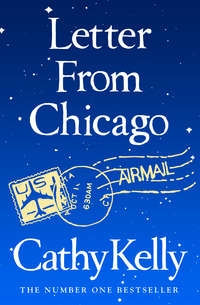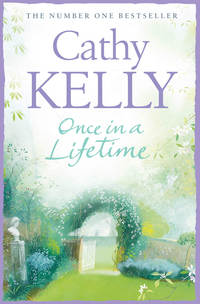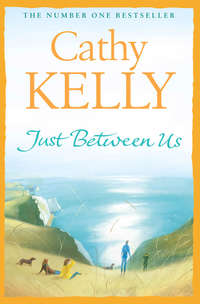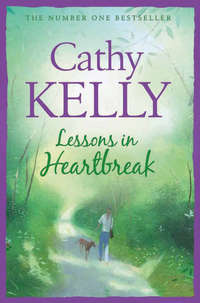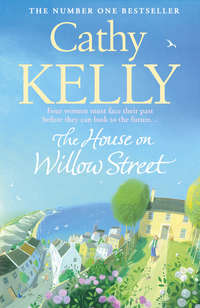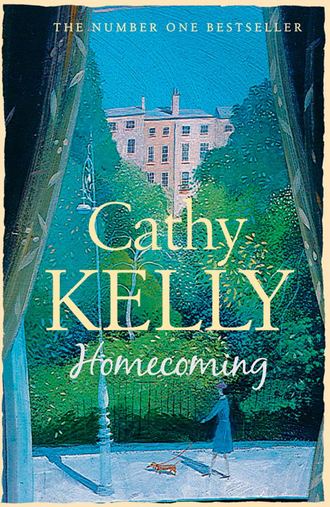
Полная версия
Homecoming
‘You are kidding, aren’t you?’ said Nora.
The woman gazed at Nora, who had poker-straight undyed grey hair and not a shred of make-up on her face.
‘You wouldn’t understand.’
‘Probably not.’
Nora could be endlessly patient. But when the woman had finally left, moaning about her messed-up pedicure, Nora had felt like shrieking, And a plague on you too! after her. Hell was definitely other people.
She checked her watch. Half six. Megan would be on the plane now.
‘Get a taxi,’ Nora had told her on the phone. ‘No point me trekking through evening traffic to the airport.’
‘OK,’ Megan stammered, clearly taken aback but trying not to show it.
‘Shall I make dinner or will you eat on the plane?’ Nora went on briskly, noting Megan’s surprise and moving on.
‘Don’t bother with dinner,’ Megan said, and she sounded more like the old Megan, less like the grand movie star who’d insisted fame wouldn’t change her and yet had been changed all the same.
It would do her good to be back in Golden Square, Nora thought. Nobody would be running round after her here. There was only Nora and Nora didn’t do running around. Not with her knees. She was glad she didn’t have to cook tonight, either. Nora knew her limits and cooking was one of them. A bit of salmon in the microwave and some plain rice would do her nicely.
The practice occupied the ground floor of the house. Normally, she’d have been sharing the space with Kevin, who was a wonderful chiropodist, but he had a week off.
‘Surfing,’ Kevin had said when he booked his holidays.
‘Whatever floats your boat,’ said Nora. ‘It’s supposed to be hard.’
‘Not for me,’ said Kevin, with the innocence of a child, and Nora thought he was probably right. For all Kev’s innocence, he was very competent.
She turned off the lights and opened the door on to the stairs leading to the rest of the house. She lived on the two upper floors.
The basement was a flat let out to a pair of girls who used to work in the bank, and now worked in a bar, making far more money in tips than they’d ever made when they were changing euros into rands and yen on the foreign exchange. The agreement was one party every two months, and so far, they’d kept their side of the bargain. Nora generally got invited to the parties, went for an hour to show that she wasn’t the sour-faced old bag from upstairs, and then retreated to bed with a cup of cocoa, her double-strength wax earplugs and her silk mask.
They all shared the garden at the back, although on weekend mornings, Nora wasn’t bothered by the girls because, like vampires, they rarely rose before noon. Even then, they looked quite undead.
This evening, Nora thought she might sit by the window overlooking the garden and drink a glass of wine to set her up for Megan’s arrival. Nora didn’t like to rely on anything unnatural for relaxation but it had been a stressful day, and she wasn’t entirely looking forward to her niece’s arrival. Megan thought nobody in Golden Square knew what had happened, as if Ireland were some provincial backwater without newspapers or the internet. Like all young people, she thought the current city she was in was the centre of the universe, and everyone who didn’t live there was to be pitied.
But Nora knew it all. And if she hadn’t, Prudence Maguire from the other side of the square had nearly burst a gut to tell her a few days before.
‘Your Megan is in a bit of trouble, is seems. Got herself involved with a married man, broken up the marriage, or so it says in the papers. Just in case you hadn’t heard,’ Prudence had added, smiling like a cobra as they stood in the queue in The Nook with their groceries.
On that particular day, Nora had some soya milk, lemons for her tea and a tin of dolphin-friendly tuna in her basket. Prudence had a half-price chocolate cheese cake and a litre of lambrusco hidden under a copy of the Irish Times. Nora knew because she’d seen Prudence put them there.
Not that she’d say anything, any more than she’d say a reproving word to the girls in the basement flat who drank two weeks’ worth of alcohol units on a Friday night. Nora didn’t tell other people what to do. Didn’t believe in it. Everyone had their own path to follow, was her motto. If Prudence wanted to be a bitch extraordinaire, destroy her arteries with cholesterol and turn into an old soak at home on her own, far be it from Nora to say anything.
‘Thank you for telling me, Prudence,’ Nora had replied calmly, adjusting her spectacles so as to get a clear view of Prudence’s face with its delighted smile. ‘Great day, wasn’t it? Nice to have a bit of heat in your bones with the really freezing weather gone.’
Prudence’s smile faltered at this. She was entirely unaccustomed to people receiving her carefully aimed gossip with politeness. Normally, the recipient would look stunned or hurt or on the verge of needing a restraining order. Nora Flynn just looked as calm as ever, round face serene. Even her smoothly tied-back long grey hair had a serenity about it. Silly cow. Probably growing magic mushrooms in her back garden, Prudence thought crossly. Stupid old bag. Nora had to be at least sixty-five, and didn’t look a day over fifty. And she was still going strong. Had to be drugs, had to be. Those alternative health people were all growing marijuana plants in their sheds and insisting it was for their health.
It was easier to have Prudence come out and say it, Nora knew. The news would be all round the square at high speed, and this way everyone would be over the embarrassment should they bump into Megan. Even Kevin, who wasn’t much of a reader, had seen it in the paper.
‘Poor Megan. It’s a bummer, isn’t it?’ he’d said.
‘Yes, a bummer,’ Nora agreed.
Another reason why she loved Kevin. There would be no sly glances from him, betraying the unspoken judgement that her actress niece had really screwed up this time. No, Kevin knew that things happened to people and you got on with life. Shit happens, he liked to say. It was a comforting philosophy, although not necessarily one you’d want embroidered on a cushion.
When she opened the door to her apartment, Leonardo and Cici, her two dogs, were waiting inside, tails wagging furiously. Leonardo, who was part-greyhound and very shivery, danced his quivering dance, while Cici, who was mainly shih tzu, all dictator, bounced up and down like a dog who hadn’t been petted for at least three hours and was on the verge of phoning the animal rescue people in outrage.
‘You had a walk at lunchtime,’ Nora said, hugging them both. ‘And this morning. You are shameless.’
She pulled on a cardigan and her duffel coat.
Nora didn’t bother much with fashion. Flat shoes, comfortable trousers and shirts worn untucked was her style. She varied the colours and the fabric, but generally, she looked the same no matter what. The hair that had gone grey in her twenties, like her mother’s, was tied back or sometimes plaited. She wore suncream in summer, moisturiser in winter, and clear salve instead of lip gloss. When Megan and Pippa had stayed with her as teenagers, they’d moaned that she had no cosmetics for them to practise on.
Bien dans sa peau, as Pippa would say now. Comfortable in her skin.
Pippa understood it, but poor Megan still didn’t. Megan worked in a world where the emphasis on the outside was so total and all-consuming that there wasn’t any time for the inside. When Megan had first said she wanted to go to acting school, Nora had got an anxious feeling in the pit of her stomach. She didn’t approve of acting or actresses. Of course, they were all ‘actors’ now, men and women. Another bit of tomfoolery. It wasn’t a steady trade. Only a few lucky ones made a living out of it, and the rest struggled endlessly, hoping for a break. Nora had known that Megan’s head would be turned by that glittery surface world, and she’d been right.
The dogs’ excited barking made her hurry to open the door and as they walked out into the dark she admired, as she often did, the beauty of the lights all around the square. Golden Square’s residents could be split into two groups: the people who owned whole houses, had two cars, and employed someone else to cut their grass, and those whose families had lived there for donkeys’ years and who couldn’t have afforded to buy one now even with the state of the market, but who were holding on for the next property boom. They cut their own grass, occasionally rented out bits of the houses to tenants, and looked enviously at their neighbours’ double glazing.
Nora was one of the latter type. Her parents had inherited the house and had moved in anxiously in the 1940s, fresh from a tiny flat above a gentlemen’s draper’s shop in Camden Street, terrified they’d never be able to heat or redecorate this comparatively enormous residence.
They’d been so proud of their new home, but always anxious about living somewhere so grand. As if they didn’t really belong.
Nobody’s windows were so clean or their garden so weedfree as the Flynns’. It was as if they felt keeping the place spotless made up for the fact that they had to repaint it all themselves. It was years before they could afford to have a roofer fix the tiles. When it rained heavily, Nora’s mother used to trail round the house nervously, waiting for the arrival of the next spot of damp. Unaccustomed to the whole notion of a garden, they’d kept the lawn shorn and attempted little else.
One of the biggest worries had been the behaviour of the various basement tenants over the years. Nora could remember her mother’s prayers that the next lot of new people would be quiet.
‘I’ll say a novena to St Jude,’ she’d say. Sometimes the novenas worked and sometimes they didn’t. Nora’s parents never wondered why, they just accepted it. God’s choice was not theirs to question.
If they could see her now, Nora thought sadly. They’d have told her to keep the dogs on the lead and her father would have been following at a crouch, plastic bag in hand, waiting for the inevitable poop.
Dogs were supposed to be kept on the lead in the square, but it was easy enough to work out which animals were there and whether it was safe to let her pair off. It was safe this evening. Nora unclipped the leads and let the dogs race off under the gentle lamplight. She sat down on her favourite bench, stretched out her legs and let the strains of the day slough off her. There were only a couple of other people about. Nora liked all the doggie people in the square. Having dogs did something to people. Made them softer, gentler.
Prudence Maguire didn’t have a dog; no surprise there. Rumour had it that her daughter had once had a hamster, but it had escaped, and Prudence had refused permission to have the couch ripped apart to find it. Nora imagined a ghostly hamster still rattling round inside the Maguire family couch, making little eldritch squeaks of distress that Prudence would totally ignore.
She glanced at her watch. Ten to seven. Megan would have landed. She’d be in the taxi soon, on her way. Nora closed her eyes and wished for the first time ever that her niece wasn’t coming. Nora had tried hard to be a steadying influence in her nieces’ lives. Her brother Fionn would have wanted his big sister to take care of his daughters when he died. But it hadn’t been easy. Marguerite, their mother, was the exact opposite of Nora: a woman who lived in a state of constant, almost child-like happiness, she was prone to both wild adventures and falling passionately in love.
She was the type who clearly needed a man around and, although she’d adored Fionn, he wasn’t long dead before she was anxiously looking for another strong male to take care of her.
She also had strange views on how to bring up her daughters.
When the carrots the children had planted hadn’t grown in Nora’s bit of garden, Marguerite stuck shop-bought ones into the earth instead and pretended to dig them up.
‘That’s appalling,’ Nora had said, unable to stop herself. ‘How can they learn about real life when you fake it for them like that?’
‘They’re only a few carrots,’ Marguerite had laughed. ‘Don’t be so serious, Nora.’
And now Marguerite was sunning herself in Ibiza with her latest hunk and didn’t appear to be treating Megan’s situation as worrying.
‘Darling, it’ll all blow over,’ Marguerite had reportedly said to Pippa when her elder daughter had phoned with the news.
Nora hadn’t spoken to Marguerite in years. It wasn’t possible to kill someone over the phone but Nora didn’t want to take any chances.
So Nora was left to pick up the pieces. But how could she? Megan still didn’t know that huge, clean carrots didn’t magically appear a couple of weeks after you planted seeds.
The cassette player in the taxi had been blasting out Moroccan music all the way from the airport and the driver, a very slender, dark-skinned man with long, artistic fingers that tapped the steering wheel in time to the beat, hadn’t spoken at all since Megan had got into the cab.
‘Very good,’ was all he’d said when she gave him the address.
‘This is it,’ she said, sitting forward in the seat at the taxi slowed down in Golden Square.
‘Very good,’ he said again, applying the brakes with a firm foot.
Megan shot forward in the back seat and banged her head on the headrest of the passenger seat. The taxi driver looked around in alarm.
‘It’s fine,’ Megan said quickly, holding a hand up in the international ‘all fine’ gesture.
He still looked alarmed.
‘Really fine,’ she said. ‘I’m OK, honestly.’
She handed him the money plus a generous tip. When you didn’t want to communicate, Megan had learned it was best to hand out big tips. It was like saying, ‘I’m not a rude bitch because I’m famous, really, but here’s a large tip, just to make sure you like me.’
‘Very good,’ the driver said.
It was clearly the only English he spoke. Poor man. He wasn’t at home here either, she thought, hauling her stuff out and shivering in the chilly night air.
Megan couldn’t actually remember the first time she and Pippa had come to stay with Nora. Their aunt and her narrow, quirky house in Golden Square had always been a part of their lives, it seemed. Yet she knew it wasn’t always so. It was only when Dad died that they’d begun to stay with their aunt for long periods of time. It was clear, though nobody had ever said as much, that Mum hadn’t coped well with her husband’s death, hence Nora had stepped in to take care of her little nieces.
Golden Square, with its endless cycle of interesting tenants downstairs, and various motley dogs, cats and even once, a parakeet, had filled the gap left by Megan’s father. Yet everyone appeared to forget that it was Nora’s brother who’d died. She had every right to be as devastated as Mum, yet she never said anything about her own grief. She’d simply moved into their lives, being there when she was needed, for summer holidays, for Christmases, her pain on hold while she did her duty.
Nora must have been watching out for Megan now because the front door opened and Nora appeared silhouetted in the hall light, trying to restrain two barking dogs.
‘Hello,’ called Megan, hauling her wheeled hold-all along the narrow garden path. The taxi driver had barely accelerated off with a roar of tyres, before the tears started rolling down her cheeks.
Nora gave up holding back Cici and Leonardo, opened the door wide and welcomed Megan into her arms, the dogs jumping eagerly around them.
‘You’re here now,’ Nora said softly. ‘It’ll be all right, Meg, you’ll see.’
Hearing the diminutive name she’d preferred when she was a kid made Megan feel even sadder. She’d had such plans for her life and what had they come to? ‘Oh, Nora, everything’s a disaster. I’ve ruined it all,’ she said.
‘Nonsense,’ Nora replied, deciding that now wasn’t the time for the lecture. She pulled the hold-all the rest of the way inside, called the dogs in and shut the front door. ‘You made a mistake, people do. You feel terrible right now, but you will feel better soon.’
Despite her tears, Megan felt familiar anger prick. Nora still talked to her as though she were a child. This was the destruction of both her life and her career, not a schoolgirl escapade. She was twenty-six, not a kid.
‘Come on upstairs. I’ve just made myself some lemon and chamomile tea, there’s plenty in the pot for two. And Bondi Vet is on later. They’re all repeats; tonight it’s the one about the parrot on Prozac, you’ll love it.’
Nora adored animal shows, everything from wild animals being secretly filmed in the bush to domestic cats being rescued from mad people who didn’t feed them: she watched them all.
Megan thought of how she’d hoped that tonight she could talk to someone who loved her and would understand. Perhaps she could finally unburden herself and tell Nora everything. But no, they were going to watch animal programmes. Still, it was better than having Nora lecture her.
‘Great,’ she said, with an enthusiasm she didn’t feel. What she’d really like was a cool glass of white wine and a hot bath, but neither seemed to be on the menu.
The dogs split the loving between them, with Cici appointing herself carer of Megan and sitting on her lap waiting to be adored. Leonardo, shaking with the excitement of the evening, lay on the couch beside Nora, his velvety grey head on her knee.
Nobody could resist a double bill of Bondi Vet and with Cici there to hug, Nora could see her niece visibly relax. Megan kicked off her shoes and folded her feet up under her on the big armchair, rearranging Cici so she was snuggled close to her. Pretending to watch the television, Nora secretly watched Megan.
Her beauty had come as a surprise. Marguerite was pretty in a blonde, girlish way, and Pippa took after her. Fionn himself had been tall, attractive and had an air of great strength about him, but he was no matinee idol. And yet along had come Megan, a genuine beauty even when she was a child. There had been no teenage anxieties for her about her looks, no acne or teeth problems, nothing. She’d grown from a slight fairy of a child with cool blonde hair and enquiring dark olive green eyes into a slight fairy of a woman, with a sheen to her skin, an inner glow that marked her out. People had stared at her when Nora took the two girls out; nobody had ever assumed Nora was their mother, which might have been hurtful except that Nora had no problems with her own lack of beauty. It was like the length of your legs: there was nothing whatsoever to do about it.
It had been no surprise that film and television people had been enamoured of Megan. Even as a child playing a little gangster in a stage version of Bugsy Malone, she was luminous.
But not so luminous now, Nora thought. Megan was wearing what all young women seemed to wear these days: those loose, boyish jeans, flat little lace-up runners and an enormous grey sweatshirt that dwarfed her. Her skin had a greyish tinge, she looked skinny and, without any make-up, the ultra-blonde hair looked cheap and, Nora hated to even think it, tarty.
Nora had read the single interview given by someone close to Katharine Hartnell in a newspaper a client had left at the surgery. Devoid of most of the usual celebrity cover-up, it had sounded heartfelt and terribly sad. There was no blithe dismissal of a lowly actress trying to infiltrate a solid movie-star marriage. Just the assertion that this had split the Hartnells up and that her husband’s betrayal had shaken Katharine to the core.
No, Nora decided. She wouldn’t say anything to Megan tonight. What could she say, anyway? She wasn’t equipped to counsel Megan over this. It was so far outside Nora’s comfort zone that she wouldn’t have known where to start.
But she felt, as her eyes stared unseeing at the Sydney vets trying to save a dog bitten by a snake, that she’d let her brother down. This wasn’t what he would have wanted for one of his beloved daughters.
3 Bread
You need good-quality flour to make decent bread. Never underestimate a nice cake of soda bread with freshly churned butter for when you’re tired and ready to sink down beside your own fire. Or a good wholemeal to set off a piece of cheese when you need energy.
It took me a long time to learn how to make good bread because my mother never measured a thing. She just threw handfuls in. Flour, some buttermilk left over from churning…I have my recipe here and I can tell you, we got more out of the flour than just bread. We got linen sheets!
I never thought we were poor, you see, Eleanor. We had exactly what everyone else in Kilmoney had, which was next to nothing. But that wasn’t poor. There was this little old creature who lived in a tumbledown shack on the coast road, and we all thought she was poor. You’d see her at Mass on a Sunday with her dress inside out and not much of a dress, either. She was as thin as a consumptive and hadn’t a tooth in her head. Lord help us, that was our vision of poverty. We always had food to eat from our garden, the hens, the ducks and the cows, and as long as someone had the loan of a donkey to go to the bog, we’d turf for the fire. Your aunt Agnes could turn her hand to anything, and she kept us neat.
Agnes learned about nice belongings when she went into service. Captain and Mrs Fitzmaurice she worked for, and nobody could say a word against them in her hearing.
Linen sheets, she said, were the last word in luxury.
Sure we have linen sheets, my father said. And we did. The eight-stone bags that the flour came in were made of a coarse linen and when the flour was emptied into the flour barrel, Mam would unpick the bags, wash them, bleach them in the sun out in the fields, and then sew them up into sheets.
Mam had been taught to knit the thread the bags were sewn with into lace. When she got sick, I took over.
I used to think, if the likes of Mrs Fitzmaurice had to live in a small three-bedroomed cottage like us, now that would be hard for a person used to fine linen. But for us, we loved it. It was home. The Captain and Mrs Fitzmaurice never had children. She was always so interested in you, Eleanor, when you were a child, that I think she’d have liked a little one or two. So you see, I never understood us being poor. In my eyes, we had everything.
On a cold Wednesday evening in January, Rae Kerrigan stood on her tiny balcony overlooking Golden Square, and watched a girl with long dark hair walk along the east side of the square. The girl might have been twenty and with her hair and a long striped scarf trailing behind her, she reminded Rae of herself when she was young. The girl walked with the energy and determination of youth, long jean-clad legs striding along, carrying what looked like a huge rucksack easily. Rae had once had a similar scarf, and had been as slender, racing along with her dark hair flying.
Men probably loved the girl’s hair. Men had certainly loved Rae’s.
‘You look like Ali MacGraw in Love Story. Never cut your hair,’ one boyfriend had begged her, after a long night at a folk concert on the campus in Galway, when they were still drinking wine in her tiny bedsit at dawn. The modern Rae was able to smile ruefully at the memory. That was well over thirty-five years ago, at least, she realised.
The boyfriend would have been shocked if he saw that the long dark hair was now tawny and shoulder-length, streaked with hairdresser’s clever soft browns to hide the grey that had appeared when she’d hit forty. But her winged brows were still mahogany dark, flared over the deep-set warm eyes that contributed to Rae’s thoughtful, penetrating gaze.
Still, that boyfriend would have changed too over the years; he probably bore as much resemblance to the earnest young philosophy student with floppy brown curls as she did to the girl she’d once been. She’d be fifty-eight on her next birthday and her life had taken paths she could never have imagined back then.


